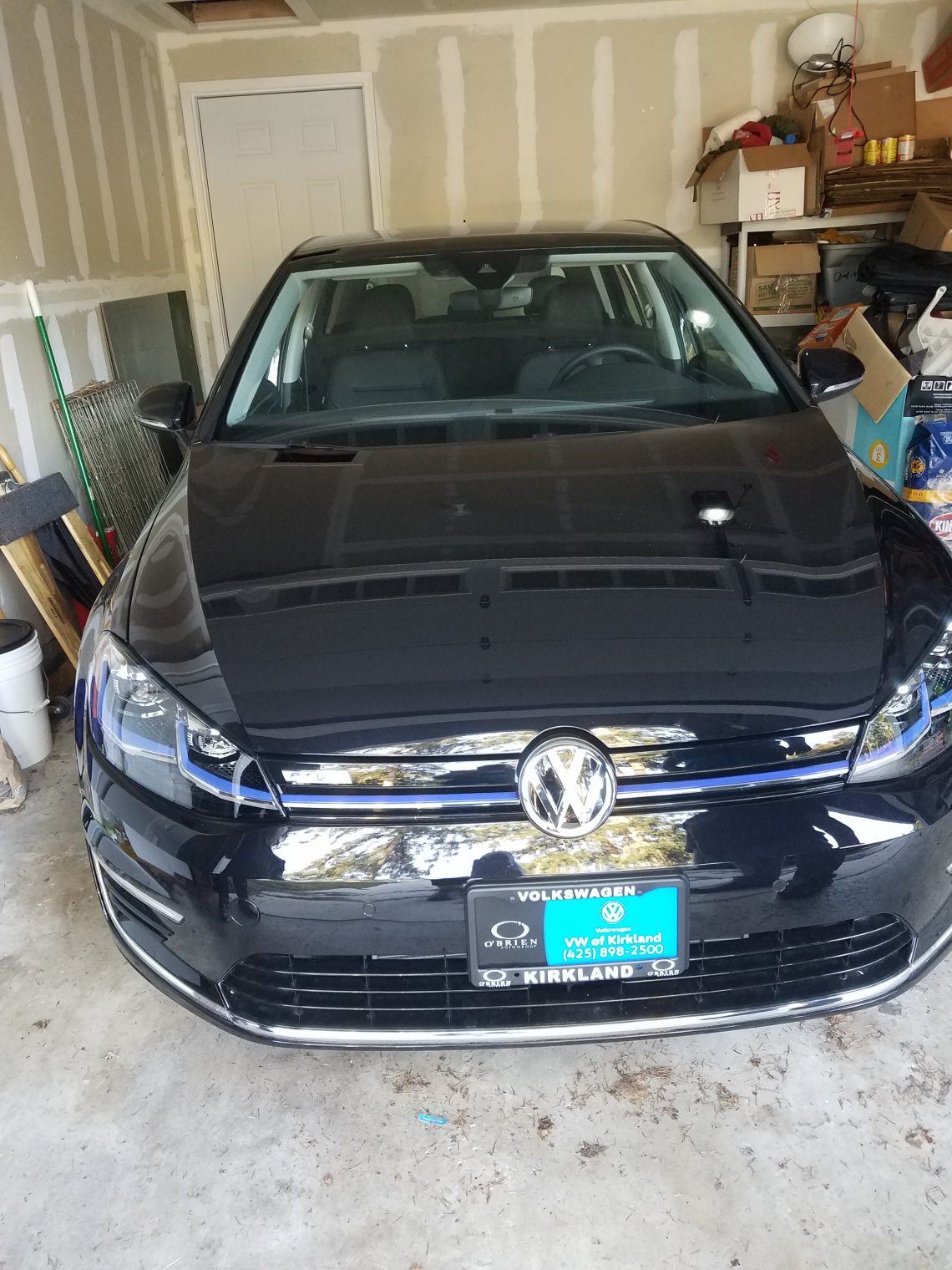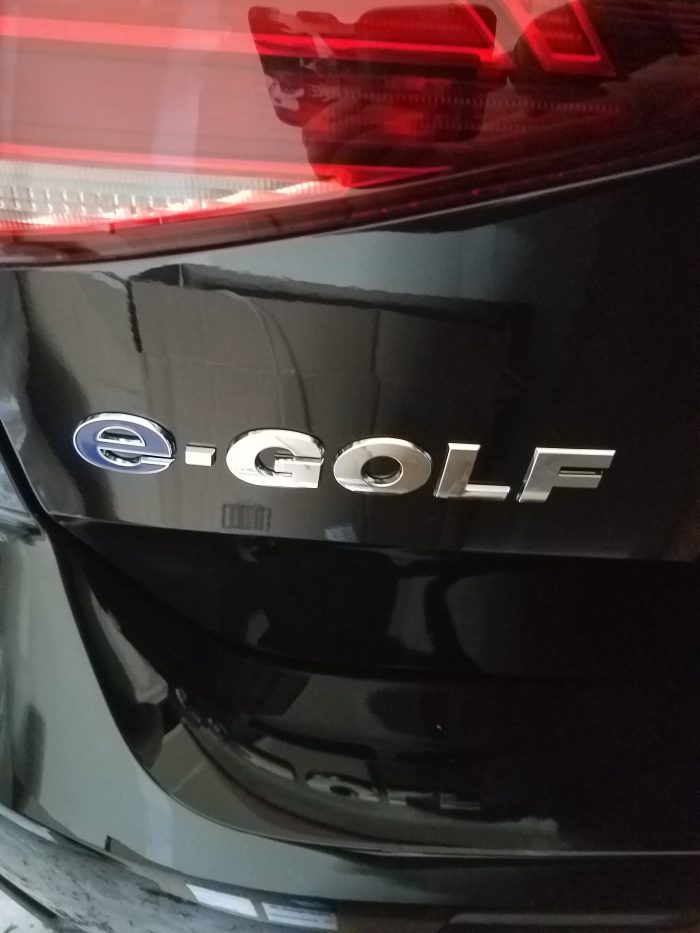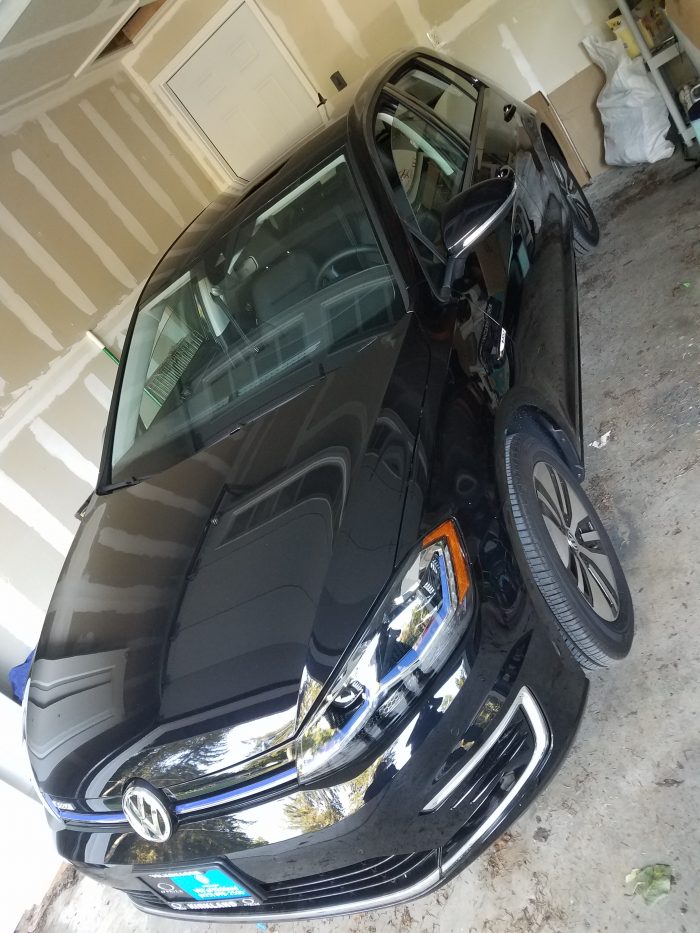
A New Car
Yesterday, we bought a car. As recently as Monday afternoon, we had no intention of getting another car. That means we went from no intention of getting a car to driving off the lot in about 48 hours. To make it worse, we bought a new car, not a new to us car, but a new car, with 59 miles on the odometer (roughly 20 of which we put on doing our test drive). We purchased a couple of the add-ons, and we financed it all – $0 down, even.
If you follow the standard personal finance advice, you may be having a bit of a heart attack right now, or wonder how I can call myself a personal finance blogger. And well, the answer is, I may not be a personal finance blogger. I might be more of a lifestyle blogger who likes to talk about personal finance. But to me, the most important piece of standard personal finance advice is to make sure that you are spending your time, effort, and money in a way that is consistent with your goals and ideals. And that is what we did. Here is the story of how it happened.
We bought our previous car, a Jetta TDI, over 13 years ago. It has over 170,000 miles on it. Two years ago, we had an $8,000 repair done on it. At the time, we had the conversation of whether it was worth it to do the repair or get a new car. At the time, we decided that this was the kind of repair that really only does happen once every decade, and as long as we were not having to have major work done on the car every year, we would be fine. But that also means that two years ago we started thinking about getting another car.
We made it through last year with nothing more than standard maintenance, though with the note that standard maintenance on the TDI models is expensive. (But only happens every 10k miles, instead of every 3k, so it really is not that bad.) In late January, we had another $3k+ repair. And then last week, we started having power steering issues. The power steering in the car was all electrical, so it had to go into the shop. Turns out it needed a new wiring harness, for about $2.2k. And the shop (not the dealership, a respected local shop) also recommended another $5k in work. We got that estimate just before 4pm on Monday.
I had helped my BFF replace her VW TDI (which she bought from us when we went back to being a one-car household) with a newer VW TDI, so all of my internet feeds have been filled with car ads. On Monday, new car makers started advertising all their end of summer/Labor Day sales deals. I noticed the deal on the eGolf specifically because 1) We have loved our VWs and 2) We have talked about getting an electric car as our next car since biodiesel is no longer easily available and almost no one is selling new diesel cars (not trucks or SUVs) in the US anymore. I mentioned it to C that afternoon, but that was it. We were not planning on getting a new car.

Then the repair estimate came in. And suddenly we were considering a new or new to us car. We spent Monday evening doing some research. We looked at what kind of interest rate our credit union would give us if we wanted to finance a used car through them. We looked at what newer model, lower mileage TDIs were going for. We looked at the new standard model Jettas. We looked at other electric cars – the Nissan Leaf, the Kia Soul EV, the Tesla Model 3. We researched the current tax credits for electric vehicles in WA state. (The PSE website has all the information in one easy to understand and navigate place.)
On Tuesday, we test-drove the VW eGolf and the Nissan Leaf. The VW was the better car. We slept on it, and on Wednesday took advantage of the contactless options on the VW site to indicate which car we wanted to buy and start the credit application process. Then at 4:30p on Wednesday afternoon, we went to the dealership to sign the final papers and pick up our new car.
Environmental issues are important to us and have always been a factor in which cars we have bought. Moving to an electric car makes a lot of sense for us, as we do not drive much, not even before the pandemic. C drives about 16 miles round trip to work 4 days a week. I drove about 30 miles round trip one day a week. And then on weekends, we drove for errands. But we do not drive 100 miles at a time, so the electric range is not a big deal. I do sometimes drive across the state, but because we are a one-car household, I always rent a car for that, anyway. Technology is changing enough that we did decide a new EV would be a much better investment than an EV even only a couple of years old.
Affordability matters, as well. But if we had gotten all the needed repairs on the Jetta (and they were needed, though some could have been put off a little longer) that would have been $18k in repairs on that car in 3 years, on a car that was just going to keep needing more repairs. Instead, we will be spending that same $6k/year on a new car payment. The WA state sales tax credit and the federal EV tax credit effectively drop the cost of the car $10k, making it comparable with any other new car we were looking at. In addition, the eGolf has the same every 10k miles or 1-year maintenance schedule as the TDI, and its maintenance is less expensive.
We had our last Jetta for 13 years. We plan to have this one for at least 10 years. And the manufacturer supports this. While we did have to pay for it, we were able to pay to extend the warranty to 10 years. But they are willing to sell a reasonably priced 7-year extension to their standard warranty. That means something. In addition, VW’s standard warranty for the eGolf battery is among the best EV battery warranties around (8 years, and they’ll replace it if performance falls below 70%, instead of only if the battery fails completely.)
And finally, VW is currently offering 72-month 0% APR financing. While we did not have enough saved to pay for the whole car, we could have put over ⅓ down. We chose to put $0 down. Free money is free money, and the savings that were earmarked for car repairs and a new car in another couple of years can now be moved to other goals.

So yes, we finalized purchasing a new car only 48 hours after we decided to get a new car. But it was something we had been thinking about, even if only in the backs of our minds, for two years. The decision was made based on the economics of keeping our current vehicle vs purchasing a new one. We did our research. The choice of car was based on our personal values. And the decisions about how much to spend and how to pay for it were reasoned, well within our budget, and make sense based on how long we intend to keep the car.
You hear all the time that millionaires do not buy new cars. But really, the stats show that, on average, millionaires are not driving the newest model year car. So all that really means is that they do not buy a new car every year. Neither do I. We bought a new car in 2002, in 2007 (when we went to being a 2-car household) and now in 2020. I do not expect to buy another one until 2030 at the earliest.
All this is to say, sometimes the standard advice is not the right advice for you or your situation. As my writing teacher used to say – Here are the rules. All good writers will sometimes break these rules. But they do not break them accidentally. They know them. They break them with purpose and intent. I think that is a great mindset for personal finance, too.



